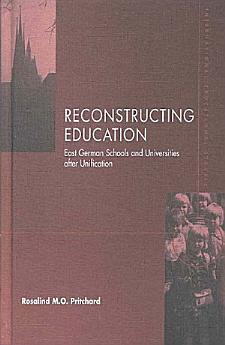Reconstructing Education: East German Schools after Unification
આ ઇ-પુસ્તક વિશે
The restructuring of the education system played a crucial role in the transformation of East Germany; consequently, enormous sums were pumped into East German schools and the training of teachers. This is the first study in any language that closely examines the process re-education and addresses such vital questions as whether the reforms were educationally sound, to what degree they meshed with local circumstances, what measures were taken to fill the vacuum in moral and social values that was left by the discrediting of Marxism-Leninism, and what happened to the notion of "equality", the key principle of a socialist society. Contrasting the old and the new regime in the East, the author addresses these and many more critical issues. Numerous case studies and substantial interview material richly illustrate the author's arguments.
લેખક વિશે
Rosalind M. O. Pritchard is Senior Lecturer in Education at the University of Ulster with responsibility for training teachers of Modern Languages and of English as a Foreign Language.




